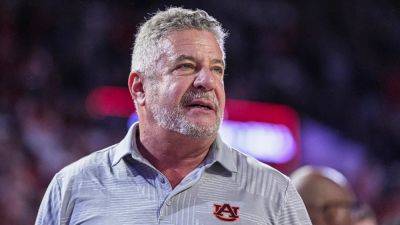The FIFA World Cup is heading to Trump's U.S. Will the world want to come — or even be able to?
You could argue the United States isn't exactly the most welcoming country for visitors at the moment.
There's been a surge of border crackdowns, new visa restrictions and an overall sense of fear over being detained amid multiple reports of foreigners being locked up for weeks in the five months since U.S. President Donald Trump took office.
Yet, one of the biggest, most highly anticipated and attended sports events is coming to the U.S. next year: the 2026 FIFA World Cup, soccer's premiere international competition.
The U.S. will co-host next year's World Cup with Mexico and Canada. Of the 16 host cities, 11 are on American soil. It's been estimated that, across the three countries, 6.5 million people will attend the tournament.
FIFA president Gianni Infantino, an ally of Trump, has promised that international fans will be welcome at the World Cup. But Trump's immigration stance has raised questions about potential challenges for the numerous international fans expected to travel to the U.S.
Human rights organizations such as Human Rights Watch have raised "grave concerns" about the matches being held in the U.S. And at the same time that excitement has started to build for the tournament — and Toronto and Vancouver have started preparing for a deluge of soccer fans — there have been calls to boycott the U.S. as a host.
The current political climate in the U.S., if it continues, could be a considerable deterrent, especially for fans from countries that are at odds with America, according to Vijay Setlur, an expert in sport marketing and sport business in the Schulich School of Business at York University.
"I could see fans potentially staying away out of a fear of being detained. Even though they're there to






